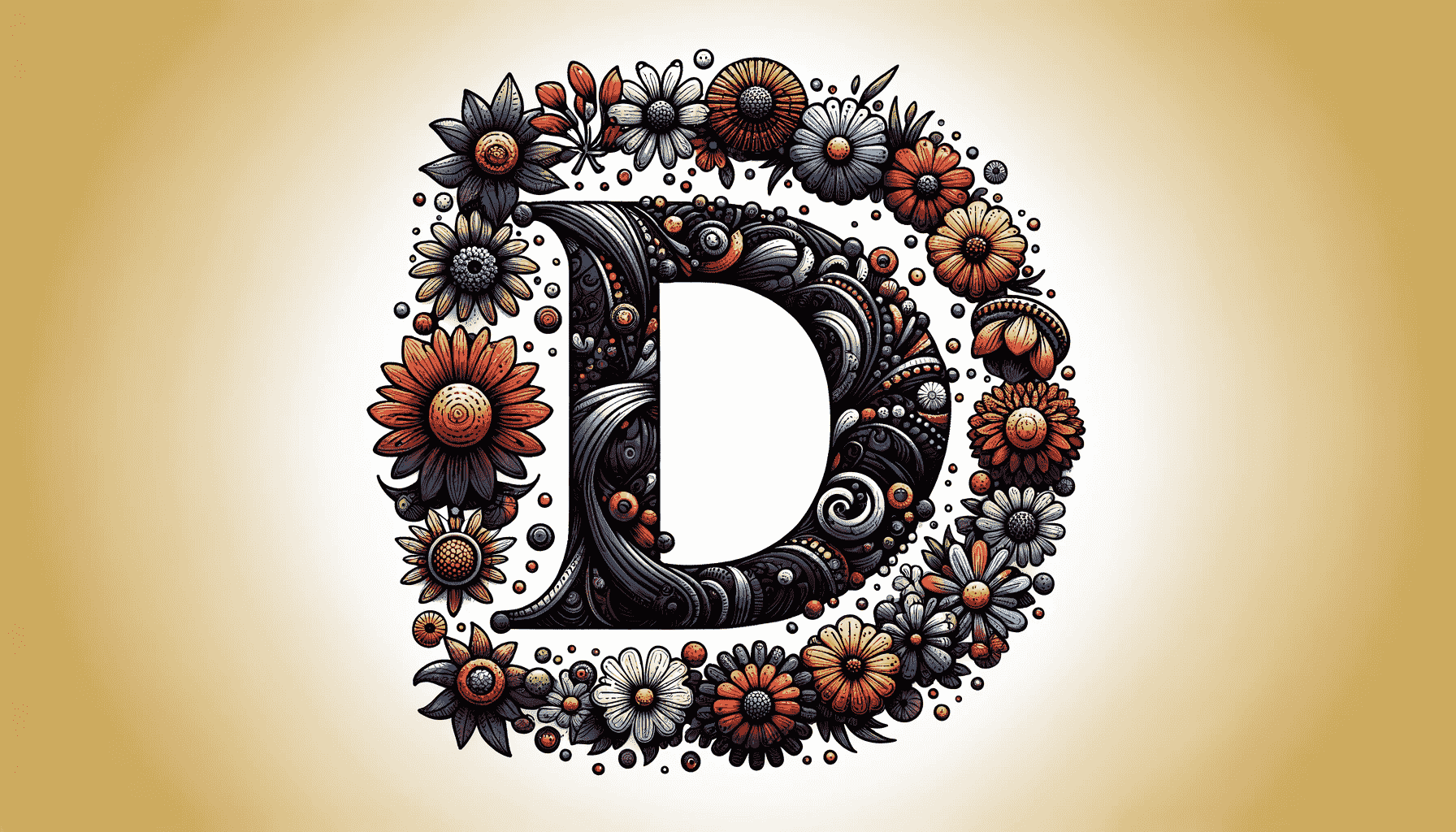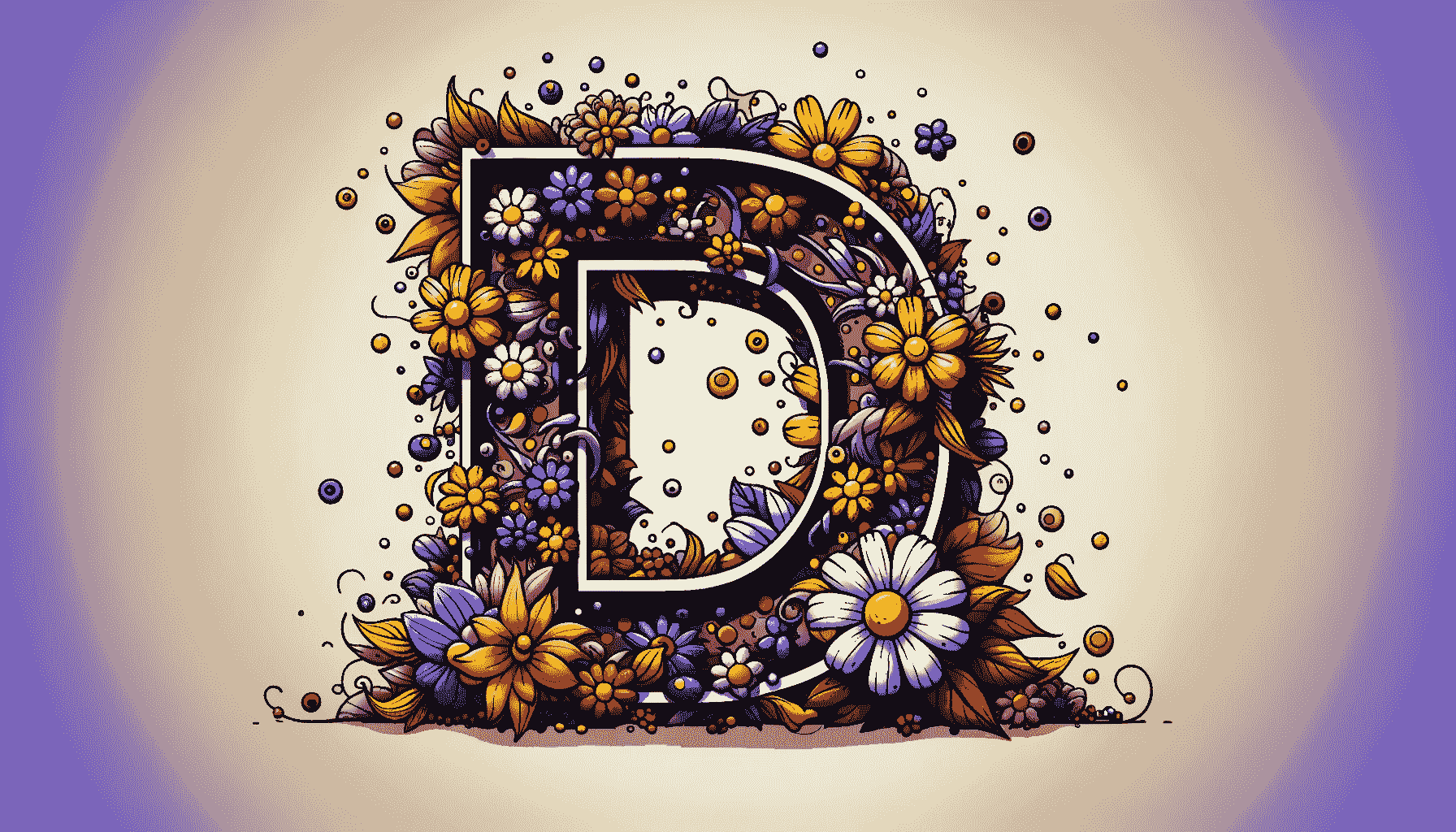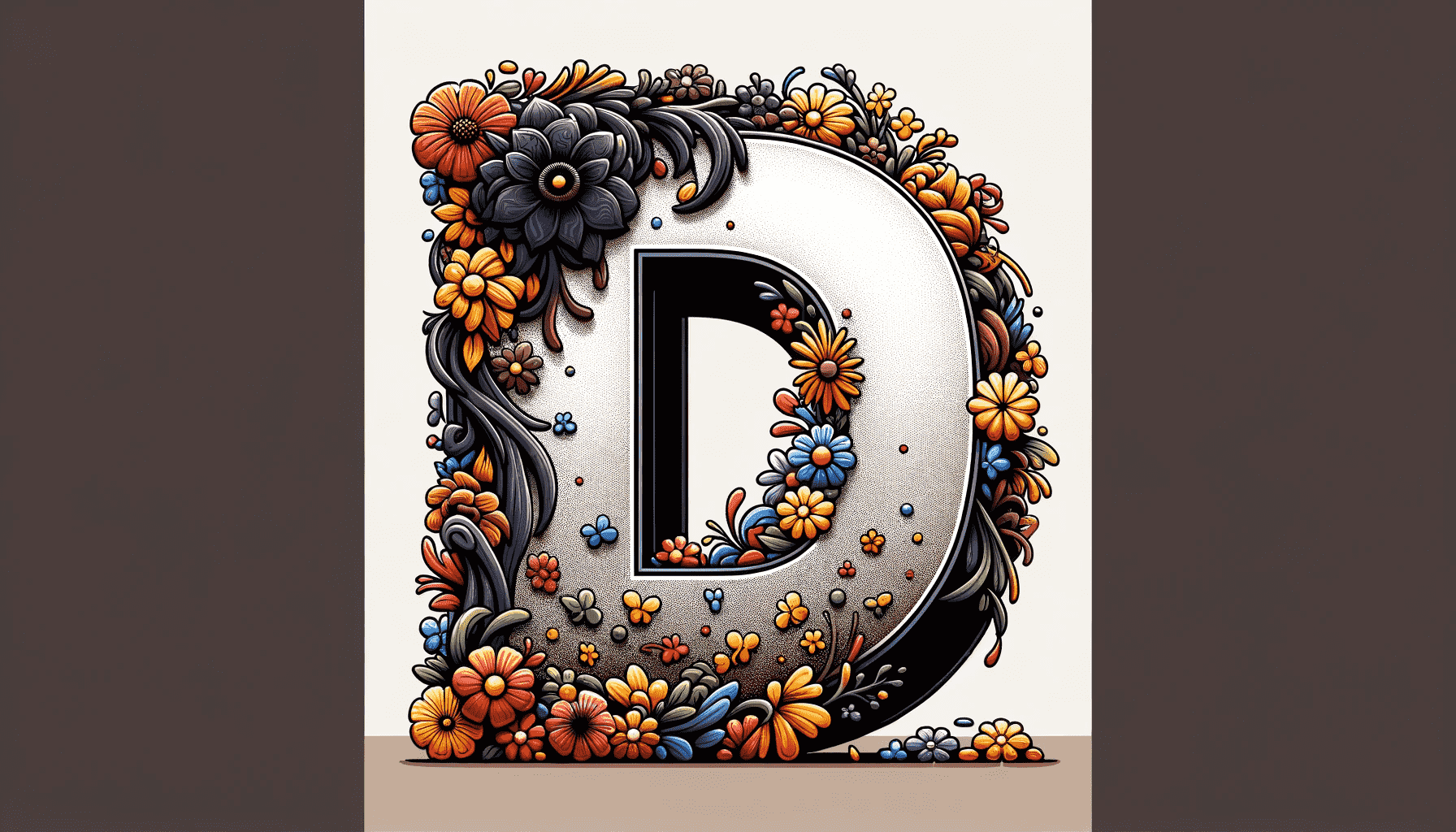Sharing is caring!
In this article, we’re going to explore a list of words that all start with the letter ‘D’ and have a negative meaning.
Words can be powerful tools to express our thoughts and feelings, but it’s important to know both the good and not-so-good words.
Learning negative words can help us better understand language and communication.
Whether it’s describing something unpleasant or expressing our displeasure, these ‘D’ words can come in handy when we need to convey negativity.
List of Negative Words That Start With D

Damp – Characterized by a slight wetness or moisture, typically in a way that is slightly uncomfortable or unpleasant.
Darn – An expression of mild frustration or annoyance, often used as a less offensive substitute for a stronger term.
Daunting – Describing a task, challenge, or situation that appears intimidating or insurmountable, invoking feelings of apprehension or fear.
Dead – Referring to the complete cessation of life, also used metaphorically to describe something completely inactive or devoid of emotion.
Deafening – Describing a sound so loud and overpowering that it makes hearing anything else impossible, often used to emphasize extreme noise.
Decadent – Characterizing excessive indulgence in pleasure or luxury, often leading to moral or cultural decline.
Decay – The gradual deterioration or decomposition of organic matter, also used metaphorically to describe decline and degeneration in structures or systems.
Deceitful – Describing a person or action that is dishonest or misleading, intended to deceive others.
Deceptive – Of something that creates an illusion or false impression, leading others to draw incorrect conclusions.
Decline – This refers to a gradual deterioration or decrease in quality, quantity, or importance.
Defame – To damage someone’s reputation or good name through slanderous or libelous statements.
Default – Failure to fulfill an obligation, especially a financial one, or a pre-selected option adopted when no alternative is specified.
Defeat – The experience of losing or being beaten in a competition, conflict, or struggle.
Defective – Describing something flawed or imperfect, often due to errors in manufacturing or design.
Defiant – Showing bold resistance or challenging authority, often in a confrontational manner.
Deficient – Lacking in some necessary quality or element, insufficient to meet a need or standard.
Defile – To spoil or desecrate something that was once pure or sacred.
Deflate – To cause a decrease in morale, confidence, or prestige, often through disappointment or failure.
Deform – To distort or disfigure the shape or form of something, often resulting in a loss of beauty or function.
Defraud – To illegally obtain money, property, or services from a person or entity through deception.
Defunct – Describing something that is no longer existing or functioning, often used about an extinct organization or a dead person.
Dejected – A state of feeling sad and dispirited, often due to disappointment or failure.
Delinquent – Describing behavior, especially of a young person, that is illegal or not acceptable to societal norms.
Delirious – In a state of mental confusion, often due to fever, intoxication, or shock, characterized by restlessness, illusions, and incoherence of thought and speech.
Delusion – A false belief or impression, especially one that is firmly held despite being contradicted by reality or rational argument.
Demolish – To completely destroy a structure reducing it to rubble, or to utterly refute an argument or theory.
Detrimental – This word describes something causing harm or damage in a subtle yet significant way.
Devastate – A term for extreme destruction or overwhelming emotional or physical impact.
Deviate – This refers to diverging from an established course or norm, typically seen as negative.
Devilish – Characterized by cunning mischief or potentially harmful playfulness.
Devolve – Indicates a regression or degeneration to a lower or worse state.
Diabolic – Suggesting an evil reminiscent of a devil, often implying wickedness or cruelty.
Diagnose – While often medical, it implies identifying something problematic, such as a disease.
Diatribe – A forceful and bitter verbal attack against someone or something.
Dictatorship – A form of government where a single individual wields absolute authority, often repressive.
Difficult – Describes tasks or situations that are hard to deal with, manage, or accomplish.
Diffidence – A lack of self-confidence that can manifest in timidity or hesitancy.
Diminish – To reduce or lessen in size, importance, or intensity.
Din – A loud, unpleasant, and prolonged noise that’s often disturbing.
Dingy – Suggestive of dullness and dirtiness, often used to describe poorly lit and grimy places.
Dire – Used to describe extremely serious or urgent situations fraught with danger or dread.
Disadvantage – A condition or circumstance that unfavorably puts one at a loss.
Disagree – To hold or express a different opinion, often leading to conflict or debate.
Disappointment – The feeling of sadness or displeasure caused by unmet expectations.
Disapprove – To have or express an unfavorable opinion about something.
Disarray – A state of disorganization or untidiness, often leading to confusion.
Disastrous – Causing great damage, destruction, or suffering.
Discard – To throw away something no longer useful or desirable.
Discomfort – A sense of physical unease or minor pain, often not severe but nagging.
Disconnect – A lack of connection or understanding, often leading to miscommunication or isolation.

Discontent – A feeling of dissatisfaction with one’s circumstances, often leading to restlessness.
Discord – Disagreement or strife, often resulting in tension or conflict.
Discredit – To harm the reputation or respectability of someone or something.
Disdain – A feeling of contempt or scorn towards someone or something deemed unworthy.
Distrust – Lack of trust or confidence in someone or something.
Disturb – Disrupting the peace or tranquility of a place or person.
Divisive – Creating disagreement or hostility between people.
Dizzy – Causing a feeling of spinning and a loss of balance.
Dodgy – Evasive or dishonest, often in a way that arouses suspicion.
Dogged – Showing determination, but often stubbornly so.
Doom – Impending disaster or fate, typically unavoidable.
Doubt – Feeling uncertain or lacking conviction.
Downcast – Feeling despondent, dejected, or in low spirits.
Downfall – A decline in power, fortune, or status.
Downgrade – Reducing in importance, value, or rank.
Downhearted – Feeling low or despondent.
Drab – Lacking brightness or interest; drearily dull.
Drag – Something tedious and uninteresting, often annoying.
Drastic – Extreme and sudden, often with significant consequences.
Dread – Great fear or apprehension about something.
Dreary – Dull, bleak, and lifeless; depressing.
Drowsy – Inducing a state of sleepiness or lethargy.
Dull – Lacking interest or excitement; boring.
Disease – An abnormal condition affecting the body of an organism, often causing discomfort or dysfunction.
Disfigure – To spoil the appearance or shape of something, often permanently.
Disgrace – Loss of reputation or respect, especially as a result of dishonorable action.
Disgruntled – Feeling or expressing discontent or anger over something.
Disgust – A strong sense of aversion or repulsion, often due to something perceived as unpleasant or offensive.
Dishonest – Lacking honesty or integrity, often involving deception or lying.
Disillusion – The process of discovering that something is not as good as one believed it to be.
Disinfect – To clean something with chemicals to destroy bacteria, but often implying that what is being cleaned was previously contaminated.
Disjointed – Lacking a coherent sequence or connection, often resulting in confusion.
Dislike – A feeling of distaste or aversion towards someone or something.
Disloyal – Failing to be faithful or true to commitments, obligations, or allegiances.
Dismal – Causing gloom or depression, typically describing something dreary or bleak.
Demoralize – To undermine someone’s confidence or morale, often making them feel disheartened or discouraged.
Denial – The refusal to accept or acknowledge the truth or reality of a situation or fact.
Denigrate – To unfairly criticize or speak about someone or something in a way that shows disrespect or contempt.
Denounce – To publicly declare something or someone as wrong or evil, often in a formal or emphatic manner.
Deplore – To express strong disapproval or disgust for something, often a moral or social issue.
Depressing – Causing feelings of sadness, despair, or a sense of hopelessness.
Deranged – Describing someone whose mental state is disturbed, often resulting in irrational or abnormal behavior.
Deride – To mock or ridicule someone or something, often in a contemptuous manner.
Derision – The act of mocking or ridiculing, a state of being laughed at or ridiculed.
Desolate – Describing a place that is bleak, lifeless, and devoid of activity or cheer.
Despair – A complete loss of hope, a state of utter hopelessness.
Despise – To feel a strong dislike or disgust for someone or something, regarding them with contempt.
Despondent – In a state of low spirits caused by loss of hope or courage.
Detest – To feel intense dislike or hatred for something or someone.
Dismay – Sudden loss of courage or resolution from alarm or fear.
Disobey – Refusing to follow rules or instructions, often deliberately.
Disorder – Lack of organization, leading to chaos and confusion.
Disorganized – Chaotic and inefficient due to lack of planning or structure.
Disorient – Causing someone to lose their sense of direction or feel confused.
Disown – Denying any relationship or association, typically with family members.
Disparage – Speaking disrespectfully or critically about someone or something.
Disparity – Notable difference, often associated with inequality.
Dispassionate – Exhibiting an absence of emotion, suggesting indifference.
Displeasure – Feeling of annoyance or dissatisfaction.
Dispossess – Forcibly depriving someone of property or rights.
Dispute – Conflict or disagreement, sometimes intense or prolonged.
Disquiet – Feelings of anxiety or unease.
Disregard – Ignoring something or someone, showing a lack of respect.
Disrupt – Interrupting the normal course or unity with disturbances.
Dissatisfaction – Feeling unfulfilled or displeased, especially with circumstances or results.
Dissent – Holding or expressing opinions that are at variance with those previously, commonly, or officially expressed.
Dissolute – Lacking restraint, especially in terms of morals or conduct.
Distort – Twisting information or facts, thus misrepresenting the truth.
Distract – Diverting attention away from something important.
Distress – Extreme anxiety, sorrow, or pain.
Sharing is caring!
